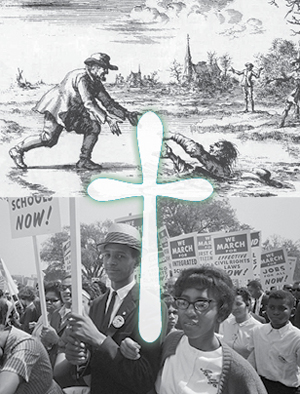
In honor of Dr. Martin Luther King Jr.’s birthday today, here is a reflection from one Brethren in Christ pastor on the relationship between Anabaptism and the Civil Rights Movement of the 1960s:
I have vivid memories from growing up in the ’60s in the midst of the Civil Rights Movement. I remember our entire Philadelphia neighborhood mourning the death of Medgar Evers, a Civil Rights activist who was assassinated in his driveway. I recall television images of young black people being beaten by police, bitten by dogs, and sprayed with fire hoses. I still recollect the hope that swelled upon hearing Dr. Martin Luther King, Jr.’s “I Have a Dream” speech and the fear that resurged a month later when four innocent girls were killed by a bomb in a Birmingham, Ala., church.
Deep within, many African Americans longed for vengeance, but Dr. King modeled a different response: nonviolent resistance. . . .
The Brethren in Christ view the Civil Rights Movement from a unique perspective. We also have a rich heritage of following Jesus, as lived out by our Anabaptist ancestors. They valued wholehearted obedience to Christ. As a result, they refused to fight back when persecuted. They believed the message of our Articles of Faith and Doctrine that: “Christ loved His enemies and He calls us as His disciples to love our enemies. We follow our Lord in being a people of peace and reconciliation, called to suffer and not to fight.” Many died at the hands of Church and state for living out their beliefs.
Read the whole article here. And join with me in praying that the biblical example of nonviolence modeled by Dr. King and Anabaptists across the centuries will continue to embolden Christians today and into the future.
